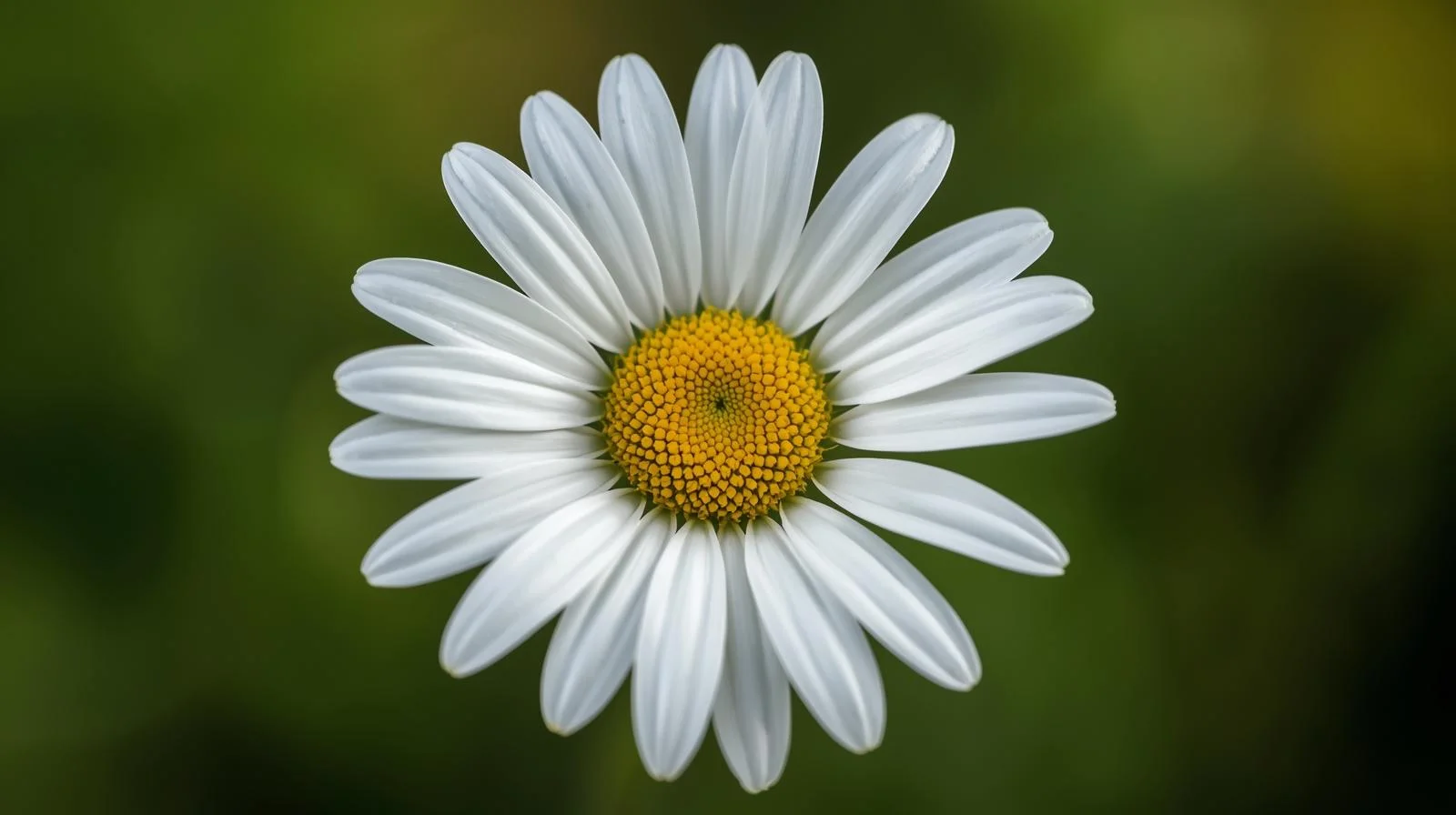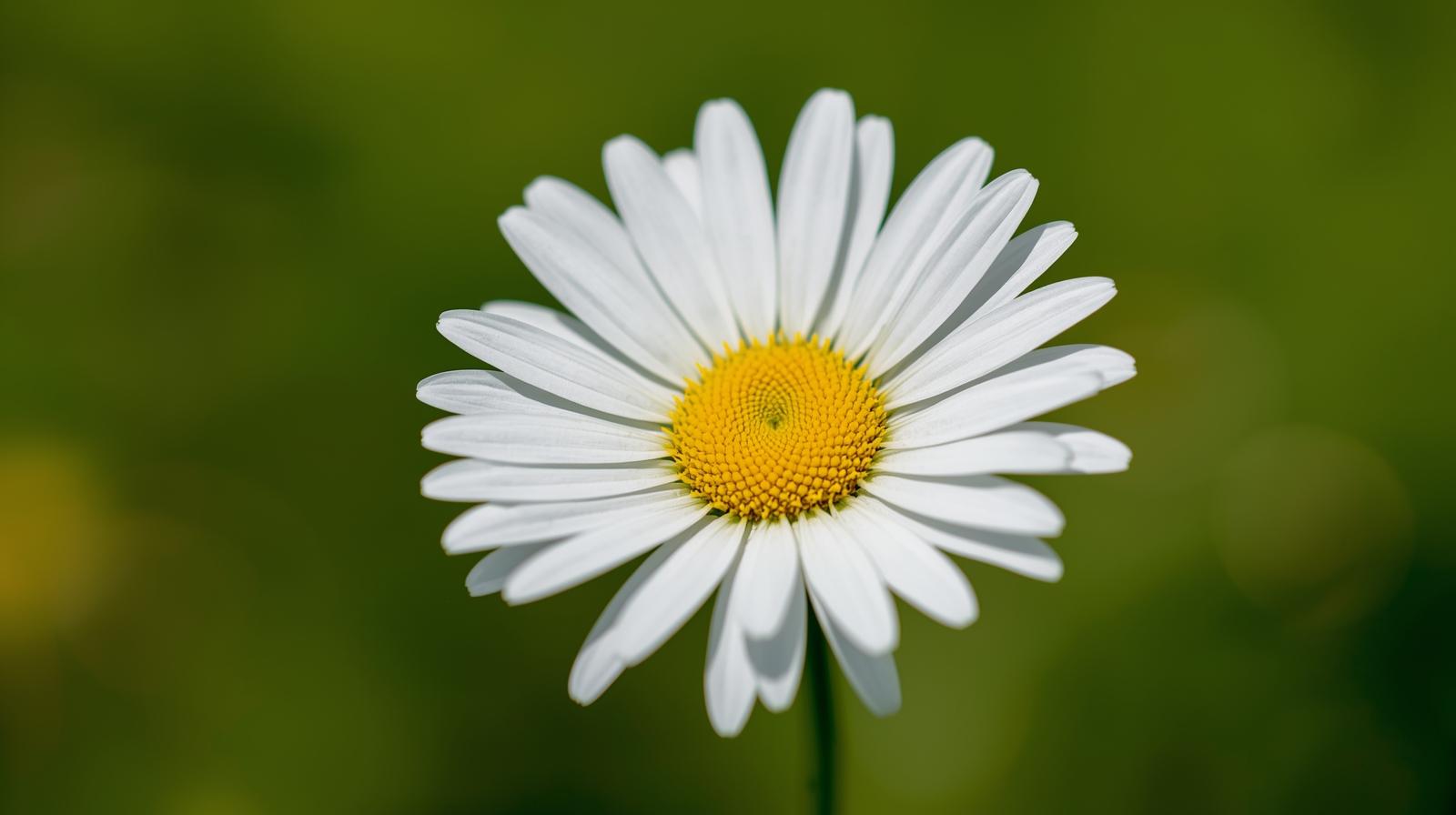Daisy Flower Meaning

The Hidden Meaning of Daisy Flowers: A Symbol of Innocence and Purity
Daisy flowers have long been celebrated not just for their delicate beauty but also for the profound meanings they carry. Daisy Flower Meaning often associated with innocence and purity, daisies are a favorite in gardens and floral arrangements. The symbolism of daisies transcends their physical appearance, encompassing themes of new beginnings and the joy of childhood. Their simple yet charming nature evokes a sense of nostalgia, reminding us of the carefree days of youth.
- The Hidden Meaning of Daisy Flowers: A Symbol of Innocence and Purity
- Unveiling the Daisy Flower Meaning: More Than Just a Pretty Petal
- Daisy Flower Symbolism: What These Delicate Blooms Represent
- Discover the Spiritual Meaning of Daisy Flowers in Different Cultures
- The Language of Flowers: Understanding Daisy Flower Meaning
- Why Daisies Are the Ultimate Symbol of New Beginnings
- The Daisy Flower Meaning: A Deep Dive into Its Significance
- From Friendship to Love: Daisy Flower Meaning
In many cultures, daisies represent purity and new beginnings. This association can be traced back to their appearance in various mythologies and folklore, where they were often linked to themes of love and renewal. For example, in Norse mythology, the daisy is associated with Freya, the goddess of love and beauty, further cementing its status as a symbol of innocent love. The flower’s ability to bloom in spring signifies a fresh start, making it an ideal choice for celebrations such as weddings and baby showers.

Unveiling the Daisy Flower Meaning: More Than Just a Pretty Petal
While daisies are undoubtedly attractive, their meanings extend far beyond their aesthetic appeal. The daisy flower is often seen as a representation of loyalty and faithfulness. This is particularly evident in the tradition of “he loves me, he loves me not,” where the act of plucking petals from a daisy reflects the uncertainty of love and relationships. Each petal represents a hope or doubt, making the daisy a flower of emotional significance.
Additionally, daisies embody the spirit of playfulness and joy. Their bright white petals and sunny yellow centers bring a sense of cheerfulness and optimism. This joyful symbolism makes them perfect for expressing sentiments of happiness and gratitude. In gifting daisies, one can convey a message of affection that is pure and heartfelt, making them a popular choice for friends and loved ones alike.
Daisy Flower Symbolism: What These Delicate Blooms Represent
The symbolism of daisies is rich and varied. Here’s a breakdown of some of the key meanings associated with these lovely blooms:
| Symbolism | Meaning |
|---|---|
| Innocence | Daisies are often seen as a symbol of purity and childlike innocence, representing the simplicity of life. |
| New Beginnings | As they bloom in spring, daisies signify fresh starts and the beauty of new life. |
| Loyalty & Faithfulness | The tradition of petal plucking symbolizes the complexities of love and commitment. |
| Joy & Playfulness | Daisies evoke happiness and light-heartedness, making them perfect for celebrations. |
| Hope | The resilience of daisies, which can grow in various conditions, symbolizes hope and perseverance. |
In conclusion, the daisy flower is more than just a pretty petal; it encapsulates a wealth of meanings that resonate deeply with human emotions and experiences. Whether symbolizing innocence, loyalty, or new beginnings, daisies continue to be a beloved flower in various cultures around the world. Their charming presence and rich symbolism make them a perfect gift for any occasion, reminding us of the beauty of simplicity and the joy of heartfelt connections.

Discover the Spiritual Meaning of Daisy Flowers in Different Cultures
Daisy flowers, with their simple yet striking appearance, have captivated the hearts and minds of people across various cultures throughout history. The spiritual meaning of daisies often revolves around themes of innocence, purity, and new beginnings. In many cultures, daisies represent the idea of hope, renewal, and the beauty of nature. For instance, in ancient Roman culture, daisies were associated with the goddess of love, Venus, symbolizing love and beauty. In contrast, Native American tribes viewed daisies as a symbol of new beginnings and the cycle of life, often using them in rituals to signify rebirth and the nurturing aspects of nature.
In the context of Eastern cultures, particularly in Japanese tradition, daisies symbolize cheerfulness and joy. They are often used in celebrations and festivals to bring happiness and a sense of community. The spiritual significance of daisies extends beyond mere aesthetics; they embody the essence of life, encouraging individuals to embrace their true selves and find joy in the present moment.
The Language of Flowers: Understanding Daisy Flower Meaning
The language of flowers, or floriography, was a popular means of communication in the Victorian era, where flowers were used to convey feelings and sentiments that words sometimes could not express. Daisies, in this floral language, symbolize purity and innocence. They are often given as gifts to convey a sense of new love, making them particularly popular in romantic gestures.
Moreover, the daisy’s simple yet elegant structure has led it to be associated with loyalty and faithfulness. When given as a token of affection, a bouquet of daisies can express the message of steadfastness in relationships. In this context, the daisy serves as a reminder of the beauty found in simplicity and the importance of cherishing genuine connections.
Why Daisies Are the Ultimate Symbol of New Beginnings
Daisies are often regarded as the ultimate symbol of new beginnings due to their vibrant appearance and resilient nature. As one of the first flowers to bloom in spring, daisies herald the arrival of warmer weather and the renewal of life after a long winter. This characteristic makes them a popular choice for celebrations like graduations, births, and weddings, where new chapters in life are celebrated.
In addition, the daisy’s ability to thrive in various environments signifies adaptability and strength. This resilience is a powerful metaphor for human experiences, reminding us that new beginnings often arise from overcoming challenges. The daisy encourages individuals to embrace change, cultivate optimism, and look forward to the endless possibilities that life has to offer.
| Cultural Context | Spiritual Meaning | Associated Themes |
|---|---|---|
| Ancient Roman | Love and Beauty | Romance, Venus |
| Native American | New Beginnings | Rebirth, Nature |
| Japanese | Cheerfulness and Joy | Community, Celebration |
| Victorian Era | Purity and Innocence | Romantic Love, Loyalty |
In conclusion, daisies hold a rich tapestry of meanings across different cultures and traditions. Their representation of purity, innocence, and new beginnings makes them a beloved flower worldwide. Whether used in floral arrangements, rituals, or as symbols of affection, daisies continue to inspire and uplift, reminding us of the beauty of life and the importance of welcoming new experiences with open arms.
The Daisy Flower Meaning: A Deep Dive into Its Significance
Daisy Flower Meaning, with its delicate petals and bright yellow center, has captivated hearts and minds for centuries. This unassuming yet beautiful flower carries with it a rich tapestry of meanings and symbolism that varies across cultures and contexts. At the core of its significance is the theme of purity and innocence, often associated with the flower’s fresh appearance and simple beauty. In many traditions, daisies symbolize new beginnings, making them a popular choice for celebrations such as weddings and baby showers.
Furthermore, the daisy is often linked to the idea of loyalty and devotion, particularly in the context of friendship. Its ability to bloom in various environments signifies resilience and endurance, embodying the steadfastness of true companionship. The versatility of the daisy allows it to convey a multitude of feelings, from platonic friendship to romantic love, making it a flower that transcends the boundaries of expression.

From Friendship to Love: Daisy Flower Meaning
Daisies are more than just a pretty flower; they represent a spectrum of emotions and relationships. In the realm of friendship, the daisy symbolizes trust and loyalty. When given as a gift, they convey a message of appreciation and a deep bond between friends. The simplicity of the daisy’s appearance reflects the uncomplicated nature of true friendship—pure, genuine, and unpretentious.
Transitioning from friendship to love, the daisy takes on a deeper significance. It is often viewed as a representation of true love and new beginnings in romantic relationships. The phrase “he loves me, he loves me not,” often associated with daisies, illustrates how this flower has become a symbol of hope and uncertainty in love. In this context, the daisy embodies the innocence and purity of first love, serving as a reminder of the beauty found in youthful affection.
| Symbolism | Meaning | Cultural Significance |
|---|---|---|
| Purity | Represents innocence and new beginnings | Commonly used in weddings and christenings |
| Loyalty | Sign of devotion and steadfast friendship | Often gifted between friends |
| Love | Symbol of true love and heartfelt feelings | Associated with romantic gestures |
| Hope | Represents optimism and new opportunities | Often seen in springtime celebrations |
In conclusion, the daisy flower’s meaning is rich and multifaceted, encapsulating themes of friendship, loyalty, love, and hope. Its simple beauty belies the depth of emotion it can convey, making it a beloved flower across various contexts. Whether you are celebrating a friendship, expressing love, or simply appreciating the beauty of nature, daisies offer a timeless reminder of the purity and joy that relationships can bring.
The daisy flower symbolizes purity, innocence, and new beginnings. It is often associated with cheerfulness and simplicity, making it a popular choice in gardens and floral arrangements.
Daisies are often given as gifts because they convey feelings of love, friendship, and loyalty. Their bright and cheerful appearance can brighten someone’s day, making them a popular choice for various occasions.
Historically, daisies have been associated with various myths and legends. In Norse mythology, they are connected to the goddess Freya, symbolizing love and beauty. In medieval times, they were also seen as symbols of purity and were often used in wedding bouquets.
Yes, there are several types of daisies, such as the common daisy (Bellis perennis) and the gerbera daisy. While the general meaning of purity and innocence is often shared, specific species may carry unique interpretations or cultural significance.
You can incorporate daisies into your home decor by using fresh or dried daisies in floral arrangements, wreaths, or centerpieces. Daisies can also be featured in artwork, textiles, or as decorative motifs in various home accessories, adding a touch of brightness and cheer.




